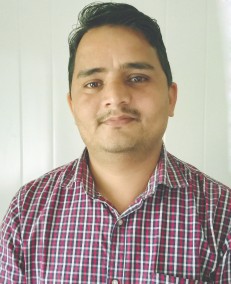Exploring the Use of Treated Wastewater from Faecal Sludge Treatment Plant of Leh for Vegetable Cultivation through Hydroponic System
The Ladakh region, nestled within the Trans-Himalayas, represents one of the most extreme cold desert ecosystems in India. Characterized by high altitude, low precipitation, intense solar radiation, and short growing seasons, Ladakh faces acute water scarcity and limited agricultural productivity. Traditional farming is constrained by poor soil fertility, glacial-fed irrigation dependency, and climate-induced variability. These challenges necessitate innovative, resource-efficient cultivation systems to ensure food security and sustainable livelihoods. To address these challenges, the Ladakh Regional Centre, G.B. Pant National Institute of Himalayan Environment (NIHE) initiated a pioneering project to evaluate the use of treated wastewater from Leh’s Faecal Sludge Treatment Plant (FSTP) for hydroponic vegetable cultivation.
The project aimed to develop protocols for soilless farming using drip-based hydroponics, specifically adapted to Ladakh’s cold-arid conditions. A detailed experiment focused on Cucumber, Tomato, Capsicum, Mangol, Lettuce and Spinach etc., cultivation across three systems: treated wastewater hydroponics, standard nutrient solution hydroponics, and traditional soil-based methods. The study assessed plant growth, fruit yield, and nutritional and phytochemical parameters. The results revealed superior vegetative growth and yield in hydroponic systems, with treated wastewater performing comparably to commercial nutrient solutions. The species grown in treated wastewater exhibited elevated chlorophyll content and safe levels of heavy metals, confirming both agronomic viability and food safety.To foster community adoption and build local capacity, a series of targeted training programs were conducted in collaboration with the Ladakh Ecological Development Group (LEDeG). These programs actively engaged farmers, youth, and key stakeholders through structured lectures and hands-on demonstrations at RTC-Bomgarh, focusing on hydroponic techniques utilizing treated wastewater. The participatory format enabled knowledge transfer, skill development, and practical exposure to soilless cultivation systems tailored for Ladakh’s cold-arid conditions.



